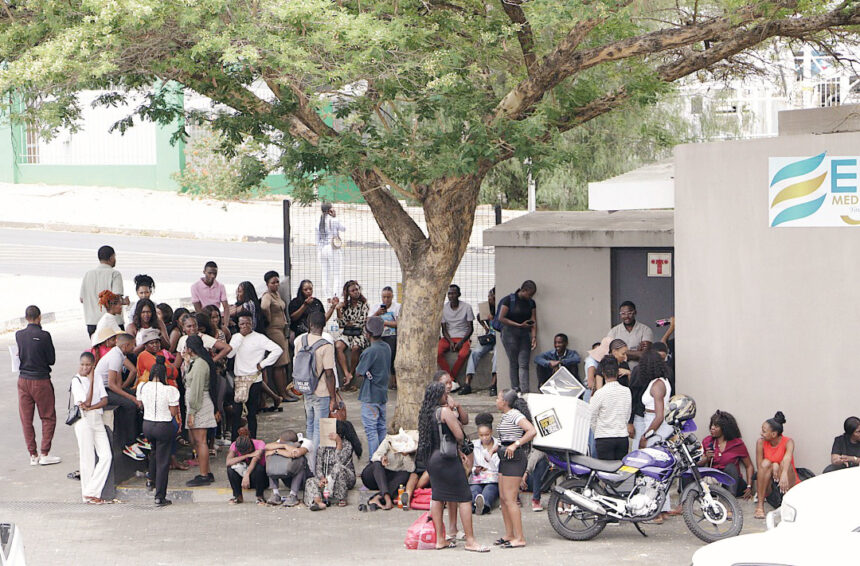Rudolf Gaiseb
The Ministry of Finance and Social Grants has issued a directive to all government offices, ministries and agencies to make budgetary provision for apprenticeships, internships and graduate internships for the 2025/26, 2026/27 financial years.
The ministry’s executive director, Michael Humavindu, said in case of no budgetary provisions, offices, ministries and agencies (OMAs) will reprioritise funds from the training and travel and substance allowance budget.
“The ministry of finance is hereby requesting all the OMAs to provide for the apprenticeship, internship and graduate internship within the budget of 2025/26 and 2026/27-2027/28 MTEF [medium-term expenditure framework],” he stated.
They are to hire 15 apprenticeship trainees and 25 interns, and pay them each N$2 500 for six months.
The directive also prompts budget provision for 25 graduate interns, who will be paid N$3 500 each for two years.
The instruction is extended to regional councils and local authorities.
Reactions
Swapo Youth League Secretary Ephraim Nekongo affirmed this is the implementation of the party’s manifesto.
“We have already started with some of the programmes tackling unemployment. Many young people come out of school, and they are impacted by the situation of experience and so forth. What we are trying to do now is to build their experience. Once we build their experience, then we are training them to be employable so that they can then be absorbed by the job market,” he stated.
The manifesto outlines expanding opportunities for internships across the public and private sectors, including through the Youth Internship Tax Incentive Programme and National Apprenticeship Programme under the National Training Authority (NTA) to provide work-integrated learning for the purpose of exposure and accrual of experience necessary for employment.
He said overcrowded industries stand a risk of being cut to produce diverse human resources in other industries as well.
“The question we must all ask ourselves is, what is the cause of unemployment? It’s the mismatch between what the industry needs and what we are training. Therefore, we will also make sure that we cut off some of the sectors that we know have an oversupply, for example, if we have more teachers, why do we continue training more teachers if we need more people to go into industries such as food production?” he asked rhetorically.
Meanwhile, Landless People’s Movement youth leader Duminga Ndala said it is commendable that young people are being granted opportunities to gain experience through such initiatives.
“It has always been our position that young people should be exposed to the labour market before they graduate, allowing them to develop a comprehensive understanding of the overall workforce and enhancing their competitiveness,” she stated.
However, this initiative should not be left to the government alone, but the private sector must also play a significant role.
Ndala wants a similar directive to be issued to private companies to provide such opportunities to young people.
“The government should incentivise private sector employment by offering subsidies or tax breaks to companies which hire young people. This approach would help reduce the burden on the government as the largest employer,” she added.
Youth unemployment currently stands at 44.4%, according to the latest Namibia Statistics Labour Force report.
Ndala highlighted that the government should empower young people within the small and medium enterprises’ sector by providing them with the necessary resources and skills to become self-employed.
Students Union of Namibia president Shikesho Natangwe observed that there must be a robust monitoring and evaluation framework to track progress, ensure quality placements, and measure impact on youth employability.
“As a youth organisation committed to the empowerment and development of young people, we welcome the ministry’s directive as a progressive step towards addressing the alarming youth unemployment rate. It demonstrates a deliberate effort by the government to integrate young people into the workforce,” he said.
He emphasised that it is equally important to ensure that these opportunities are well-distributed across regions, and are not limited to central government offices only.
“The inclusion of rural and marginalised youth must be a priority,” he asserted.
National African Students Association (Nasa) president Muzani Muzani said this will keep youth busy and productive, thus reducing depression and the abuse of alcohol and drugs faced by the youth.
“The association welcomes new initiatives being carried out by the new government to improve the Namibians’ standards of living. However, a permanent solution is needed, and engagement with youth and different youth groups could be a start to this long journey,” he noted.
“With the integration of sport and the ministry of education, it is about time the government officially recognise sport and content-creation as careers, invest more in sports development, and push for online content monetisation. This will increase the number of those participating in the Olympic Games and other activities, reducing the number of unemployed individuals on the streets,” he added.
Photo: Heather Erdmann


